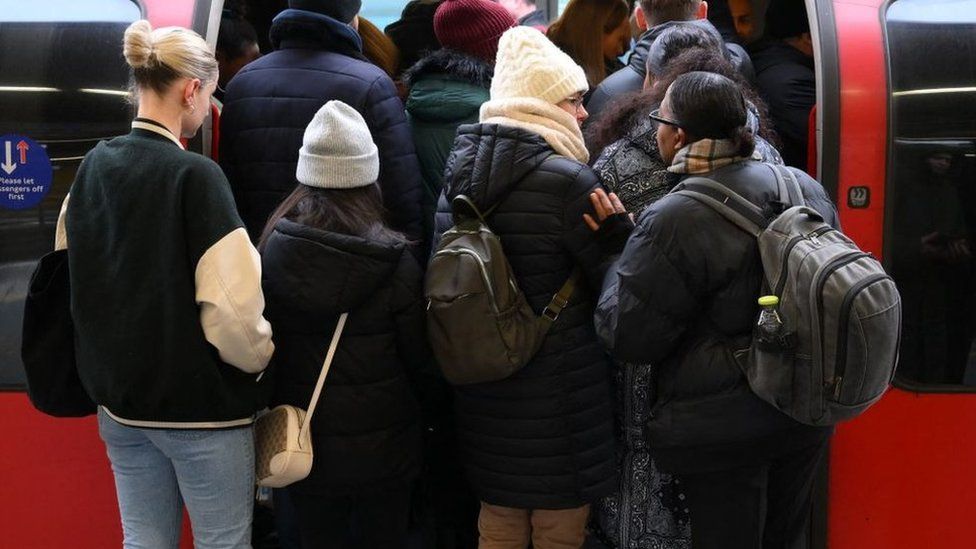ARTICLE AD BOX
 Image source, Getty Images
Image source, Getty Images
The boss of the RMT rail union has said that both sides involved in the long-running dispute over pay and jobs need to "work quickly" to end the strikes.
Mick Lynch told the BBC that there had been "an exchange of views", but it was important that employers, ministers and unions were getting together.
He said he would like to see improved proposals on pay and working conditions for its members.
But he told Sky News that he believes a deal is "achievable".
"We need to work quickly, and we need a bit of goodwill from all parties," Mr Lynch said.
On Friday, rail workers began another 48-hour walkout following strikes earlier this week.
There is also industrial action scheduled from 18:00 on Christmas Even until 27 January as well as strikes in early January.
Rail passengers are being advised to travel only when absolutely necessary and significant disruption is also likely on non-strike days.
Asked how much of a pay increase would be enough for RMT union members, Mr Lynch declined to give a figure but said: "We'll discuss that behind closed doors with the employers.
"We've asked for substantial increase in pay. We don't put a figure either publicly or to the employers in our claims."
The union leader also said that the pay offer which he would describe as "acceptable" would depend on the conditions attached.
"The government is insisting that all this money is self generated from our own members' working practices so it depends what can be generated through the savings and efficiencies they're demanding," he said.
"It's not as complex as me saying 'I'd like this amount of money' and them saying we'll see what we can do, unfortunately it's very complex."
The RMT is involved in two sets of negotiations.
One is with Network Rail, where the RMT represents around 20,000 signallers and maintenance workers. The other is with the Rail Delivery Group (RDG), where it represents about 20,000 workers at 14 train companies.
Along with the pay rises, Network Rail, which owns and operates the tracks across Britain, offered its staff other benefits including discounted rail travel for family and friends.
But the deal also depended on big changes to working practices in its maintenance teams, which would involve 1,900 job losses, though Network Rail has insisted this could be achieved by voluntary means.
The company has said there would be a guarantee of no compulsory redundancies until the end of January 2025.
Mr Lynch also hit out at claims from rail company bosses that changes to working conditions and schedules would not compromise staff safety.
"At the moment we have planned preventative maintenance which ensures we have a safe regime. They're going to move to risk-based maintenance which means 50% of the current level of inspections and maintenance work will be cut,".
"So there'll be half the work getting done compared to previously and we believe that compromises safety."
He suggested that more night shifts being required for workers would also have a bad impact on their wellbeing.

 1 year ago
20
1 year ago
20








 English (US)
English (US)